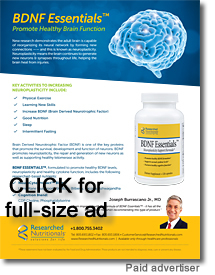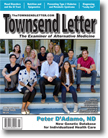Page 1, 2
Twenty Things About Nature I Noted
Alan Logan, ND, gave the keynote at the British Columbia Naturopathic Association's conference in October 2018. His content resonated deeply with me. Let me summarize the points that struck home as I listened:
- Depressive symptoms are associated with inflammatory markers.4 Exposure to nature reduces both.
- Levels of psychological distress are increasing over time5 and people are shifting away from empathy toward more narcissistic patterns of thinking.6
- It's time to put nature back in naturopathy.
- Excellent book: The Oxford Textbook of Nature as Medicine is available.
- Various schemes have been developed to measure how connected people are with nature. Assessments of nature relatedness, nature connectivity, and nature connectedness, all attempt to measure the degree the Vis flows from nature into us (my words).7,8 This connection is increased by exposure to nature. The greater the connection, the happier people appear to be.9
- Daniel Baxter in a 2018 review: "It is our overall conclusion that the literature supports the claims that human beings have a basic psychological need to feel a secure and pleasant experiential connection in a cognitive, emotional and physical sense."10
- Higher scores on nature relatedness correlate with overall psychological well-being, vitality, and meaningfulness in life. They also associate with lower anxiety and greater empathy.11,12
- No surprise: the more tree canopy in a neighborhood, the higher people score on nature relatedness.13
- Scientific understanding of what factors affect nature connectedness is still very weak. Logan proposed a list of questions that need to be investigated.14
- People in MRI functional scanners shown photos of rural scenes have increased activity in areas of the brain associated with emotional stability and empathy.15
- Viewing nature scenes lowers biomarkers of stress.16
- For patients in hospital having a window view of trees leads to shorter hospital stays, fewer post-surgical complaints and reduced need for analgesics.17
- "Shinrin-Yoku" – Forest Bathing: studies have involved over 1000 subjects, and two dozen different forest settings: Spending time in forest (vs. built) setting equals less stress and depressive symptoms; increased vigor.
- Urban nature walking reduces depression.18
- Views of nature outside classrooms produced measurable cognitive benefit in Michigan high school students in 101 schools.19 Proximity to green space was associated with improved academic performance in Massachusetts.20 Nature exposure reduces aggressive behavior.21
- People sleep better the closer they live to parks.22
- "[D]ose-response analysis for depression suggests that visits to outdoor green spaces of 30 minutes or more during the course of a week could reduce the population prevalence by up to 7%."23
- Exercise improves mental attitude and exercising outside has 50% more positive effect on attitude than exercising in a gym.24
- The closer a woman lives to green space the lower her risk for an adverse pregnancy outcome,25 lower her risk to be depressed during pregnancy,26 and the lower the risk for her kids to develop asthma.27
- For children, lack of access to green space increases chances of having emotional problems.28
Treefarm Communications recorded the entire conference and Logan's lecture can be purchased from them: www.TreeFarmTapes.com
Grand Rounds Sessions
 Glen Cassie did something unique at the naturopathic conference held in Vancouver in October, or at least new to me. He organized what he called a "Grand Rounds" session. A room was set up with large round tables and at each table was either a lecturer or expert on a particular topic. Conference attendees picked a table and talked with the presenter for a 'session' before moving on to another table. I had the opportunity to sit in a small group with Neil McKiney, who always has something interesting to talk about in regard to treating cancer. Then after we switched tables, I had the pleasure of hearing from Jody Stanislaw, a ND and diabetes educator from Seattle who is a hoot. Glen Cassie did something unique at the naturopathic conference held in Vancouver in October, or at least new to me. He organized what he called a "Grand Rounds" session. A room was set up with large round tables and at each table was either a lecturer or expert on a particular topic. Conference attendees picked a table and talked with the presenter for a 'session' before moving on to another table. I had the opportunity to sit in a small group with Neil McKiney, who always has something interesting to talk about in regard to treating cancer. Then after we switched tables, I had the pleasure of hearing from Jody Stanislaw, a ND and diabetes educator from Seattle who is a hoot.
When queried, Neil admitted that his next book is scheduled to come out in late Spring of 2019. While I have copies of his early books on my shelf, it's time for me to get a copy of his next one. Neil is quite excited with the results he is seeing with a new protocol he's developed for advanced prostate cancer. It centers around using Polygonatum cyrtonema (aka Solomon's seal) in an herbal formula:
I prescribe 60% Solomon's seal tincture with 20% each yew and periwinkle, take ½ tsp twice daily in juice or water – eg. shake well, put 1 tsp in liquid, drink half in the am and half in the pm…. It has been very well tolerated and almost every cancer patient so far has responded immediately and strongly. Some cases take a month or two to improve. The yew and periwinkle are restricted herbs. Yew (Taxus brevifolia) is the source of the taxane family chemo drugs such as Docetaxol and Paclitaxel. It can cause nausea. Periwinkle flower (Catharanthus rosea or Vinca rosea) is added as an anti-inflammatory. It can lower blood sugar. It is not suitable for brain cancers.
Jody Stanislaw, ND, was diagnosed with juvenile diabetes when she was seven and brings a lifetime of experience to her practice along with an enthusiastic personality that made listening to her fun. Her practice is all telemedicine, and her website links to useful videos that will prove useful to the right patients. (She only works with autoimmune diabetics, that is type 1 diabetics.) Her Vancouver lecture was about how to preserve beta-cell function in these patients, an admirable, highly useful, but at this point still unproven goal. Her website is DrJodyND.com.
References .pdf
Page 1, 2
|
![]()
![]()
![]()
![]()






